
The Last Ones Shall Be First is a 1957 West German crime film directed by Rolf Hansen and starring O.E. Hasse, Ulla Jacobsson and Maximilian Schell. It is based on the short play The First and the Last by John Galsworthy which had previously been adapted into a British film 21 Days. It was entered into the 7th Berlin International Film Festival. It was shot at the Spandau Studios in Berlin and on location in Hamburg. The film's sets were designed by the art directors Kurt Herlth and Robert Herlth.

The Marriage of Mr. Mississippi is a 1961 Swiss-West German comedy film directed and co-written by Kurt Hoffmann and starring O.E. Hasse, Johanna von Koczian and Martin Held. It is based on the 1952 play of the same name by Friedrich Dürrenmatt. It was entered into the 11th Berlin International Film Festival. The film was shot at the Spandau Studios in Berlin, and on location in Zurich. The sets were designed by the art directors Hertha Hareiter and Otto Pischinger.

The Captain is a 1971 West German comedy film directed by Kurt Hoffmann and starring Heinz Rühmann, Johanna Matz and Horst Tappert. The captain of an old tramp steamer is offered the chance to take over a luxury cruise ship.
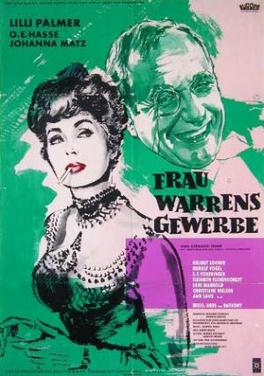
Mrs. Warren's Profession is a 1960 West German drama film directed by Ákos Ráthonyi and starring Lilli Palmer, O. E. Hasse and Johanna Matz. It is an adaptation of George Bernard Shaw's 1894 play Mrs. Warren's Profession.

The Glass Tower is a 1957 West German drama film directed by Harald Braun and starring Lilli Palmer, O.E. Hasse and Peter van Eyck. It was made by Bavaria Film at their studios in Munich. The film's sets were designed by the art director Walter Haag. Palmer plays the role of an adulterous socialite.

Miss Madame is a 1934 German comedy film directed by Carl Boese and starring Jenny Jugo, Paul Hörbiger, and Olga Limburg. The film's sets were designed by the art director Erich Czerwonski. It was based on play of the same title by Ludwig Fulda.

Arlette Conquers Paris is a 1953 West German comedy film directed by Viktor Tourjansky and starring Johanna Matz, Karlheinz Böhm and Claus Biederstaedt. It was shot at the Babelsberg Studios and on location in Paris. The film's sets were designed by the art directors Franz Bi and Bruno Monden.

Everything for Father is a 1953 West German comedy film directed by Karl Hartl and starring Johanna Matz, Curd Jürgens, and Peer Schmidt. It was shot at the Göttingen Studios. The film's sets were designed by the art director Gabriel Pellon.

The Sergeant's Daughter is a 1952 West German war romance film directed by George Hurdalek and starring Johanna Matz, Jan Hendriks and Friedrich Domin. It was based on a 1903 novel by Franz Adam Beyerlein which portrayed life in the army of William II.

The Forester's Daughter is a 1952 West German musical comedy film directed by Arthur Maria Rabenalt and starring Johanna Matz, Karl Schönböck and Will Quadflieg. It is based on the 1907 operetta Die Försterchristl, which is set in the Austrian Empire during Franz Josef's reign. The film is part of the operetta film subgenre. It was shot at the Bavaria Studios in Munich and on location around Bad Tölz. The film's sets were designed by the art director Robert Herlth.
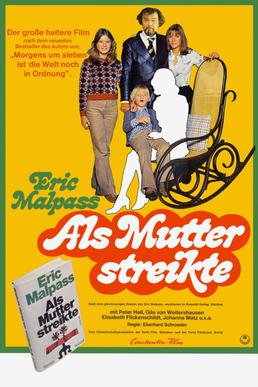
When Mother Went on Strike is a 1974 West German comedy film directed by Eberhard Schröder and starring Peter Hall, Gila von Weitershausen and Belinda Mayne.

Anonymous Letters is a 1949 German drama film directed by Arthur Maria Rabenalt, and starring Käthe Haack, Tilly Lauenstein, and O.E. Hasse. It was shot at the Tempelhof Studios in West Berlin and on location in the city at the time of the Berlin Blockade. The film's sets were designed by the art director Willi Herrmann.
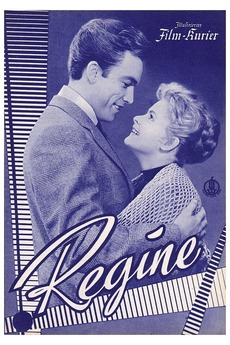
Regine is a 1956 West German drama film directed by Harald Braun and starring Johanna Matz, Erik Schumann and Horst Buchholz. It was shot at the Bavaria Studios in Munich. The film's sets were designed by the art directors Kurt Herlth and Robert Herlth.
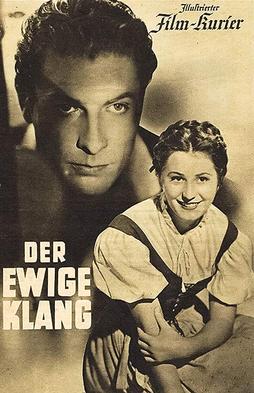
The Eternal Tone is a 1943 German drama film directed by Günther Rittau and starring Elfriede Datzig, Rudolf Prack and Olga Chekhova.
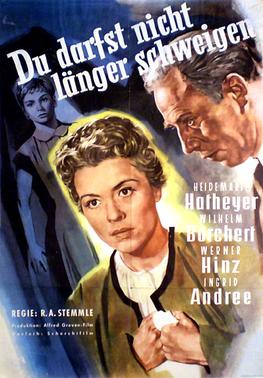
You Can No Longer Remain Silent is a 1955 West German romantic drama film directed by Robert A. Stemmle and starring Heidemarie Hatheyer, Wilhelm Borchert and Werner Hinz. It is based on the 1929 novel Morning of Life by Kristmann Gudmundsson. It is set amongst feuding Scandinavian fishing families.

The Happy Years of the Thorwalds is a 1962 West German drama film directed by Wolfgang Staudte and John Olden, starring Elisabeth Bergner, Hansjörg Felmy and Dietmar Schönherr. It is based on J.B. Priestley's 1937 play Time and the Conways, with the setting shifted from Britain to Germany. It portrays two family gatherings - the first in 1913 during the German Empire before the First World War and the second in 1932 in the dying days of the Weimar Republic before the Nazi takeover.

And Lead Us Not Into Temptation is a 1957 West German drama film directed by Rolf Hansen and starring Johanna Matz, Heidemarie Hatheyer and Gerhard Riedmann. It was shot at the Spandau Studios in Berlin and on location around Bolzano in Trentino. The film's sets were designed by the art directors Kurt Herlth and Robert Herlth.
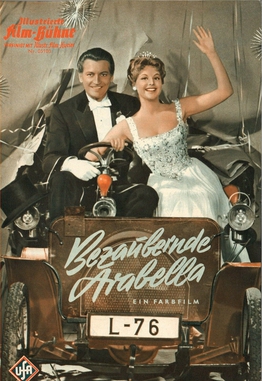
Adorable Arabella is a 1959 West German comedy film directed by Axel von Ambesser and starring Johanna von Koczian, Carlos Thompson and Hilde Hildebrand. It is an adaptation of the 1949 novel Arabella by Georgette Heyer.
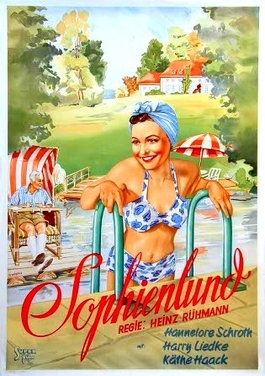
Sophienlund is a 1943 German comedy film directed by Heinz Rühmann and starring Harry Liedtke, Käthe Haack and Hannelore Schroth. It was based on a play of the same title by Helmut Weiss and Fritz von Woedtke. It was shot at the Babelsberg Studios in Berlin and on location around the baroque Buckow Castle. The film's sets were designed by the art director Willi Herrmann. The 1956 Austrian film Engagement at Wolfgangsee was an Agfacolor remake directed by Helmut Weiss.

Master of Life and Death is a 1955 West German drama film directed by Victor Vicas and starring Maria Schell, Ivan Desny and Wilhelm Borchert. It was shot at the Spandau Studios in West Berlin and on location around the city and in Brittany. The film's sets were designed by the art directors Hans Ledersteger and Ernst Richter. It is based on the 1938 novel of the same title by Carl Zuckmayer.




















